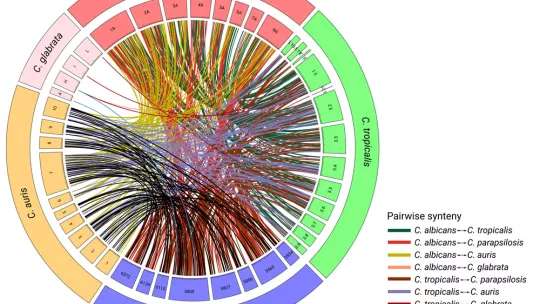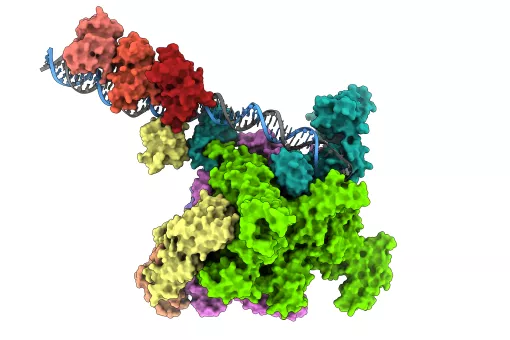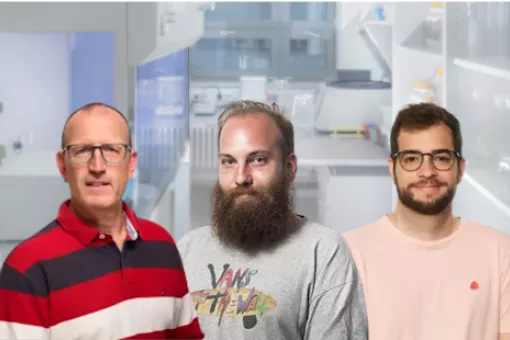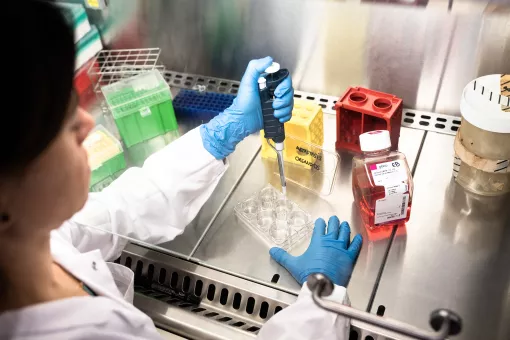Images
The molecules identified could play important roles in Candida infection in human epithelial tissue.
It is estimated that 75% of women will suffer from vaginal candidiasis at least once in their lifetime.
The work done by the Comparative Genomics laboratory at IRB Barcelona and the BSC’s has been published in the journal Nature Communications.
Fungi of the Candida genus cause diseases such as vaginal candidiasis (highly prevalent but not serious) and systemic candidiasis (rare but can be fatal in immunocompromised patients). Although some treatments are available, these infections are becoming increasingly resistant to drugs, so finding new therapeutic approaches is crucial for global health.
Dr. Toni Gabaldón, ICREA researcher and group leader at the Institute for Research in Biomedicine (IRB Barcelona) and the Barcelona Supercomputing Center (BSC), and postdoctoral researcher Dr. Hrant Hovhannisyan have identified fragments of genetic material in the Candida fungus that do not encode proteins but that are specifically expressed during distinct stages of the infection process. This discovery paves the way for new approaches to treat candidiasis.
“It’s the first time that non-coding RNA molecules in fungi of the Candida species have been studied systematically, and it has been an interesting finding to be able to identify some related to the infection process,” says Dr. Gabaldón. For each Candida species analysed, the researchers have discovered between 190 and 270 such fragments, which may play a role in the infection.
Long non-coding RNA molecules
The various processes necessary for animal, plant, and fungal life are encoded in the form of DNA and stored in the cell nucleus. To carry out these functions, DNA gives rise to another type of genetic material, namely RNA, which is responsible for encoding the proteins that will ultimately execute cell functions. However, in some cases, these RNA molecules do not produce proteins but rather remain in the form of genetic material and usually have regulatory functions.
Researchers from the Comparative Genomics lab at IRB Barcelona and the BSC’s have identified a series of RNA fragments that do not code for proteins and that are related to the infection process of fungi belonging to the Candida genus. The scientists have analysed the presence of these fragments in several Candida species during the infection of vaginal epithelial cells and have observed patterns that correlate with the different stages of infection.
Long non-coding RNA molecules also show high specificity. That is, they differ between some species of fungi and others and are very different from the molecules present in human cells. This would allow the development of strategies to attack only the species causing the infection, thus minimising side effects.
“This discovery paves the way to use these RNA molecules as a therapeutic target, which could mean a paradigm shift in the treatment protocols of these diseases.” concludes Dr. Gabaldón. In future studies, the groups will focus on detailing the role of these RNA’s in the infection process.
This work has been carried out by combining laboratory experiments and computational analysis of more than 2,000 experiments deposited in publicly accessible databases of genetic studies. The algorithm developed is publicly accessible and can be used to identify this type of non-coding genetic material in other species.
The work has been supported by funding from the Spanish Ministry of Science and Technology, the European Regional Development Fund, the Government of Catalonia, the Instituto de Salud Carlos III, and the European Union through the Marie Sklodowska-Curie Programme.
Related article:
The long non-coding RNA landscape of Candida yeast pathogens
Hrant Hovhannisyan & Toni Gabaldón
Nature Communications (2021) DOI: 10.1038/s41467-021-27635-4
About IRB Barcelona
The Institute for Research in Biomedicine (IRB Barcelona) pursues a society free of disease. To this end, it conducts multidisciplinary research of excellence to cure cancer and other diseases linked to ageing. It establishes technology transfer agreements with the pharmaceutical industry and major hospitals to bring research results closer to society, and organises a range of science outreach activities to engage the public in an open dialogue. IRB Barcelona is an international centre that hosts 400 researchers and more than 30 nationalities. Recognised as a Severo Ochoa Centre of Excellence since 2011, IRB Barcelona is a CERCA centre and member of the Barcelona Institute of Science and Technology (BIST).







